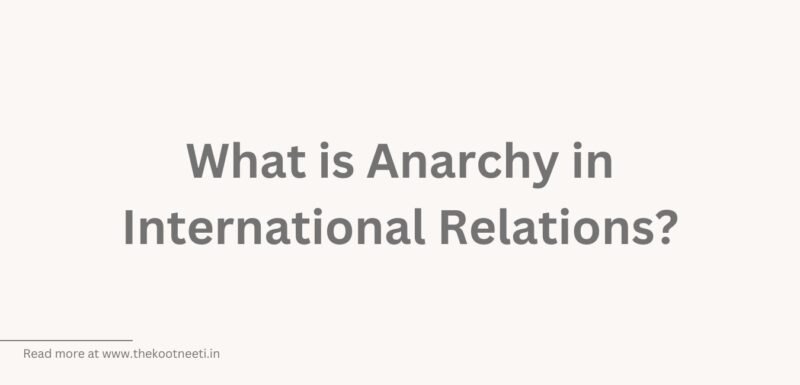What is Anarchy in International Relations?

Anarchy in international relations refers to the absence of a centralized authority or governing body to regulate the interactions between states or other actors in the international system. In an anarchy, there is no overarching power or set of rules to enforce order and resolve conflicts, and states are left to navigate their relationships with one another on their own.
Anarchy is a key concept in international relations theory and is often used to explain the behavior of states in the absence of a central authority. It is generally believed that anarchy leads to a state of constant competition and conflict, as states seek to protect their own interests and ensure their own survival in a volatile and unpredictable environment.
Some scholars argue that anarchy is a natural and inevitable feature of the international system, while others believe that it can be mitigated through the development of international organizations and other mechanisms for cooperation and conflict resolution. Ultimately, the degree of anarchy in the international system is shaped by a complex mix of historical, cultural, and economic factors.
In Economy
Anarchy can be contrasted with a planned economy, in which economic decision-making is centralized and guided by a central authority, such as a government or a state-controlled planning agency.
Some proponents of anarchy argue that it allows for greater economic freedom and efficiency, as individuals and firms are able to make their own decisions based on their own preferences and knowledge. Critics of anarchy argue that it can lead to a lack of coordination and stability in the economy, as there is no central authority to address market failures or provide a safety net for those who are disadvantaged by market forces.


















